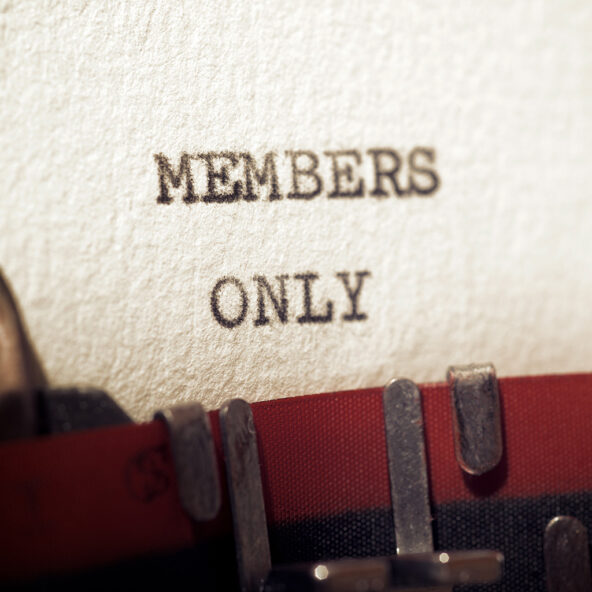What is Traveller Discrimination?
Membership of the Traveller community ground
If someone treats you less favourably because you are a member of the Traveller community and someone else is not.
Irish Travellers were recognised as a distinct ethnicity in 2017
‘Member of the Traveller community’ is defined as a member of a community of people who are commonly called Travellers and who are identified (both by themselves and others) as people with a shared history, culture and traditions including, historically, a nomadic way of life on the island of Ireland.
What is Traveller discrimination in membership clubs?
Membership clubs - a sports club for example - are one of the services covered by the Equal Status Acts and, as a general rule, cannot discriminate on any of the nine specified grounds.
However, there are important exemptions.
What law protects me against discrimination in clubs?
The Equal Status Acts protect me against discrimination in membership clubs.

What's covered under the ESA?
The ESA ban discrimination, harassment and sexual harassment in the sale or provision of goods and services, housing services and access to education.
In particular, clubs must not discriminate in:
- issues of admission
- terms and conditions of membership
- terminating membership
- making reasonable accommodation for members with disabilities (subject to the nominal cost exemption).
A Membership Club is a club that has applied for or holds a certificate of registration.

You can experience discrimination in four different ways.
Direct discrimination
Where someone treats you less favourably than another person in a similar situation because of a different personal characteristic or circumstance that falls under the protected grounds.
Indirect discrimination
Where a policy or provision applying to everyone puts you at a disadvantage because of a personal characteristic or circumstance that falls under the protected grounds.
Discrimination by imputation
Where someone treats you less favourably than another person in a similar situation because they have incorrectly assumed (‘imputed’) that you fall under the protected grounds.
Discrimination by association
Where you are treated less favourably than another person in a similar situation because of your connection or relationship with someone who falls under the protected grounds.
Under Irish law, the protected grounds are:
Gender (male, female, transgender or nonbinary)
If someone treats you less favourably because you are a different gender to someone else.
Civil status (single, married, separated, divorced, widowed or in a civil partnership)
If someone treats you less favourably because you have a different civil status to someone else.
Family status (being pregnant, a parent, an acting parent of a child, or a carer of a person with a disability who requires continued care)
If someone treats you less favourably because you have a different family status to someone else. (Note: some situations falling under this ground may also fall under the gender ground.)
Sexual orientation (heterosexual, homosexual or bisexual orientation)
If someone treats you less favourably because you have a different sexual orientation to someone else.
Age (only applies to people aged 18 years and over)
If someone treats you less favourably because you are older or younger than someone else and it is without a good reason (‘objective justification’). (Note: this ground does not cover alleged discrimination against children in schools.)
Religious belief (including religious background and those who have no belief)
If someone treats you less favourably because you have a different religion to someone else, or, for example, because you do not have a religion and someone else does.
Membership of the Traveller community
If someone treats you less favourably because you are a member of the Traveller community and someone else is not.
Race (skin colour, nationality, ethnic or national origin)
If someone treats you less favourably because you have a different skin colour, nationality or ethnicity to someone else.
Disability (intellectual, mental and/or physical disability)
If someone treats you less favourably because you have a disability and someone else has a different disability or does not have a disability.
Under the disability ground, please also see information on disability and reasonable accommodation.
If you are trying to access housing or accommodation, there is one extra protected ground:
Housing assistance (including housing assistance payment (HAP), rent supplement or another social welfare payment)
If someone treats you less favourably because you are receiving rent supplement, housing assistance payment (HAP) or another type of social welfare payment and someone else is not.
When does a membership club discriminate?
In general, a club discriminates if:
- it has a rule, policy or practice which discriminates against a member or applicant; or
- a person involved in its management discriminates against a member or applicant in relation to the affairs of the club. This includes issues of admission, terms and conditions of membership, terminating membership and making reasonable accommodation for members with disabilities (subject to the nominal cost exemption).

Registered Membership Clubs
Clubs that are licensed to sell alcohol to members and certain visitors under the Registration of Clubs Act 1904 to 2008 can have certain membership conditions that are not discriminatory. However, such clubs cannot discriminate in the provision of goods and services that are available to the public, or a section of the public.

Non-registered clubs
Clubs with no license to sell alcohol are covered by the Equal Status Acts if they provide goods and services to the public or, to a section of the public, and not just to members. Here, the general exemptions and specific grounds-based exemptions for services under the Equal Status Acts apply as normal.

What exemptions are there for membership clubs?
Under the Equal Status Acts, it is not discrimination if a club:
(for example - gender, civil status, family status, sexual orientation, religious belief, age, disability, nationality or ethnic or national origin, persons who are members of the Traveller community or persons who have no religious belief) and it refuses membership to other persons.
Example: It is not discrimination to have a club for LGBT people.
where it is not practicable for those outside the category to enjoy the benefit or privilege at the same time as members within the category. The clubs must make arrangements to offer the same or, a reasonably equivalent benefit or privilege to those members outside the category.
Example: A tennis club can have a men’s tournament, so long as it also has a women’s tournament.
access to which is not based on any protected ground.
Example: A club can offer a choice of full membership, off-peak membership, and so on.
by offering particular fee rates or, membership arrangements to persons of a particular gender, by reserving places on the management board etc. or takes other steps for the principal purpose of obtaining a more equal involvement in club matters of persons who are members of a particular category.
Example: Golf clubs which used to refuse women to become members can offer special rates to encourage them to join now.
to members of a particular gender, age, disability, nationality or national origin as regards sporting facilities or events.
Example: A club can have events just for children, or for people with disabilities. Apart from in the case of gender, the club does not have to balance the special event with another one, such as a tournament for older people.
How can I complain about a discriminating club?
Complaining about a membership club under the ESA is different to other services.
The Workplace Relations Commission does not make decisions on claims about discriminatory clubs.
You must complain to the District Court.
Any person can apply to the District Court for a declaration that a membership club (not a nightclub) is discriminating.
If it is found to be a discriminating club and it is the first such order made against the club, the District Court can suspend a club’s certificate to sell alcohol for a period of up to 30 days. The effect of the suspension is that the club cannot sell alcoholic drinks.
While a second or subsequent determination that a club is a discriminating club remains in effect, no certificate of registration shall be granted or renewed.
The Acts provide for an appeal to the Circuit Court and a club can apply to the District Court for a declaration as to whether it remains a discriminating club.
Actions taken to the District Court may involve costs.

Have you experienced discrimination for another reason?
Select the ground and area where you have experienced discrimination

